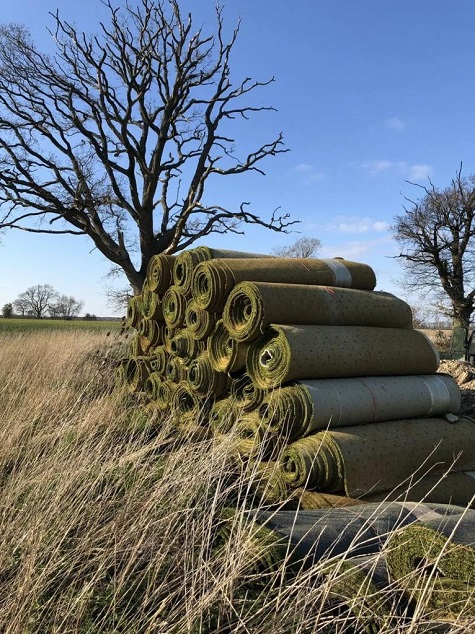Perhaps Defra has shares in the oil industry? That at least would help to explain its complete failure to address the plastic grass debate by providing honest information and education to the public.

Here’s the problem.
Due to inaction by Defra and other governing bodies (not to mention MPs), our outdoor spaces are being increasingly carpeted in plastic. That’s right - carpeted gardens; try explaining that to the wildlife losing its habitat and food. And not only is it the kind of non-recyclable and oil-based product we need so badly to reduce - it also strips away essential but fragile ecosystems, massively damaging our attempts to combat climate change, promote biodiversity and maintain human health.
This inexplicable failure to lead leaves us with nothing more than hope - that’s right, hope; no plans, no standards, no goals, just hope that somehow people might change their behaviour and put an end to this destructive trend. But …
. . . hope’s no good. If you don’t tell people what’s wrong, why should they change?
What we desperately need is good information and education. With that, even the most libertarian of politicians would then be satisfied that the public can be left to make up their own minds responsibly without any nannying.
But it isn’t happening. Why not?
What would convince our governing bodies finally to grow a spine and be proactive in sharing simple, obvious and strategically important information? There’s certainly no shortage of incentives:
Money? Well, that’s easy. The entire UK horticultural industry is worth some £24 billion. But however big the contribution from the plastic grass sector, it is hugely outweighed by the combined revenue power of all the products and services supporting sustainable gardening. So, HM Treasury, if you want to back the right horse and keep growing this successful industry, get Defra to help with education about living gardens, not dead ones.
Climate change? What a fantastic win-win this should be for the government and horticultural agencies! Up and down the country people are crying out for guidance on how to do their bit for tackling climate change and its impacts right here in the UK. And what could be simpler - and more popular - than helping people to understand their choice between sustainable living grass and inert oil-based plastic?
Biodiversity? The living natural world is an increasingly popular banner for politicians of all colours wanting green credentials. Yet when was the last time - or even the first time - you heard one talk about the environmental perils of plastic grass, or promote appreciation for the simple lawn and its contribution to stronger biodiversity?
Plastic trees? Of course not, but hear me out. Trees, quite rightly, capture the imagination of Westminster, agencies, horticultural organisations and the like of you and me because we see and admire them; we see the birds nesting in them; we know of the rain forest and its role in keeping us all alive.
Well, here’s something you should be hearing loud and clear from all horticultural organisations and governing bodies - grass does exactly the same! So now is the time for grass to receive the same respect and the same energy and commitment to promoting accurate information and education and better-informed choices.
Without this, all those responsible for inaction during the continued decline in living outdoor spaces and the catastrophic consequence of this in the future will share a shameful legacy of failure.
So, Defra et all, what do you say?
By David Hedges Gower - Chairman of the Lawn Association